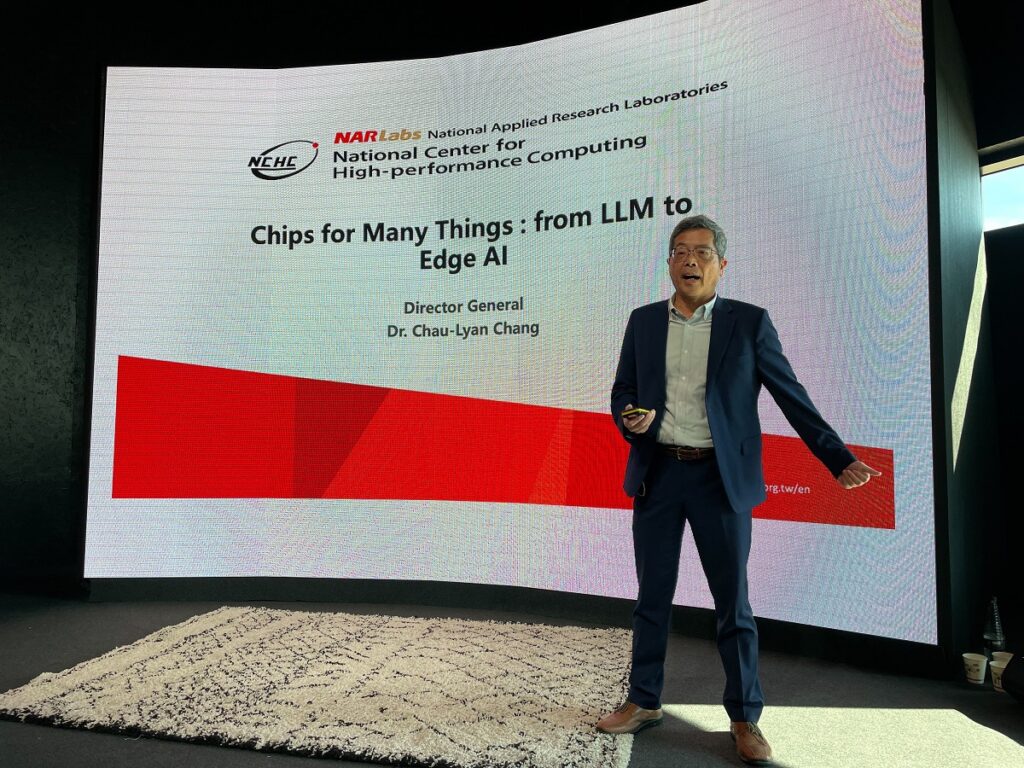During the recent CogX Festival, Dr. Chau-Lyan Zhang, Director of Taiwan National Center for High-performance Computing (NCHC) engaged in a conversation with 《The Icons》, sharing his insights on Taiwan’s prospects in the field of AI and its global positioning. CogX, one of the UK’s three major AI conferences, not only provided a platform to showcase innovative ideas but also brought together leaders, innovators, and decision-makers in the AI sector. Zhang emphasized that despite Taiwan’s significant hardware advantages, collaboration with countries like the UK, strong in software and biomedicine, still required overcoming challenges such as geopolitical issues.
From Hardware to ESG: How Taiwan Aligns with the International AI Landscape

Zhang delved into the three aspects of ESG:
“From an environmental perspective, reducing the size and energy consumption of AI chips could have a positive impact on the environment. On the social front, the need to align AI technological advancements with human values, a key theme at CogX. Regarding governance, the exemplary data management practices of the UK biobank, a large-scale biological database collecting health data and samples from 500,000 UK residents, supporting various biomedical research initiatives.”
When discussing SDGs, Zhang emphasized a comprehensive approach: “integrating SDGs into research and development programs naturally yielding positive effects.” He advocated for a high-level and holistic perspective, extending the focus from short-term to long-term solutions.
Addressing challenges in Taiwan’s AI industry, Zhang noted that while Taiwan had matured in certain areas such as biomedicine and security monitoring, there was still a significant gap in AI system development compared to leading nations. He stressed the importance of investing resources in developing higher-level AI and mentioned the potential impact of high-level AIs like AlphaGo. AlphaGo, developed by DeepMind, is an AI program designed for playing the board game Go, achieving a level surpassing top human Go players through techniques like deep learning and Monte Carlo tree search.
On the talent front, Zhang pointed out the talent shortage faced by Taiwan’s AI industry. “Due to the immense demand in the semiconductor industry, many graduates in AI fields chose to join companies like TSMC(Taiwan Semiconductor Manufacturing Co., Ltd).” He emphasized the importance of providing an international environment to attract foreign talent.
Finally, when discussing the possibility of becoming regulators in the ESG domain, Zhang believed it to be an excellent direction. However, for success, a globally credible institution and a set of standards were necessary.
“Platforms such as GitHub in addressing coding issues and suggested a similar platform for ESG matters. These professional insights provided a framework to understand the various concepts and points.” From the CogX experience to the challenges and opportunities in Taiwan’s AI industry, Zhang’s insights revealed Taiwan’s position in global AI development and possible future pathways.
Dr. Chau-Lyan Zhang: ESG Requires a Credible Global Institution and a Set of Standards

Zhang’s presentation at the CogX Festival revealed his profound insights into Taiwan’s prospects and challenges in the global AI landscape. He emphasized Taiwan’s hardware manufacturing advantages while highlighting the need to overcome challenges such as geopolitical issues when collaborating with powerhouse countries in software and biomedicine like the UK.
Zhang delved into the three aspects of ESG and stressed the importance of integrating SDGs into research and development programs. He also pointed out the gap in Taiwan’s AI industry at the system level compared to leading nations and the talent shortage issue faced by the industry.
Finally, he discussed the possibility and challenges of becoming regulators in the ESG domain, emphasizing the need for a credible global institution and a set of standards and suggesting platforms for reference in problem-solving. Zhang’s insights provided a valuable perspective, helping us understand Taiwan’s current status and possible future directions in the AI field.
Interviewee Introduction:

Dr. Chau-Lyan Zhang, currently the Director of the NCHC, possesses extensive academic and practical experience in information technology and artificial intelligence. With a deep background in the field, he actively promotes international cooperation and exchanges under his leadership at the NCHC, one of Taiwan’s major research institutions focused on high-performance computing research and applications.
Recommend for you: